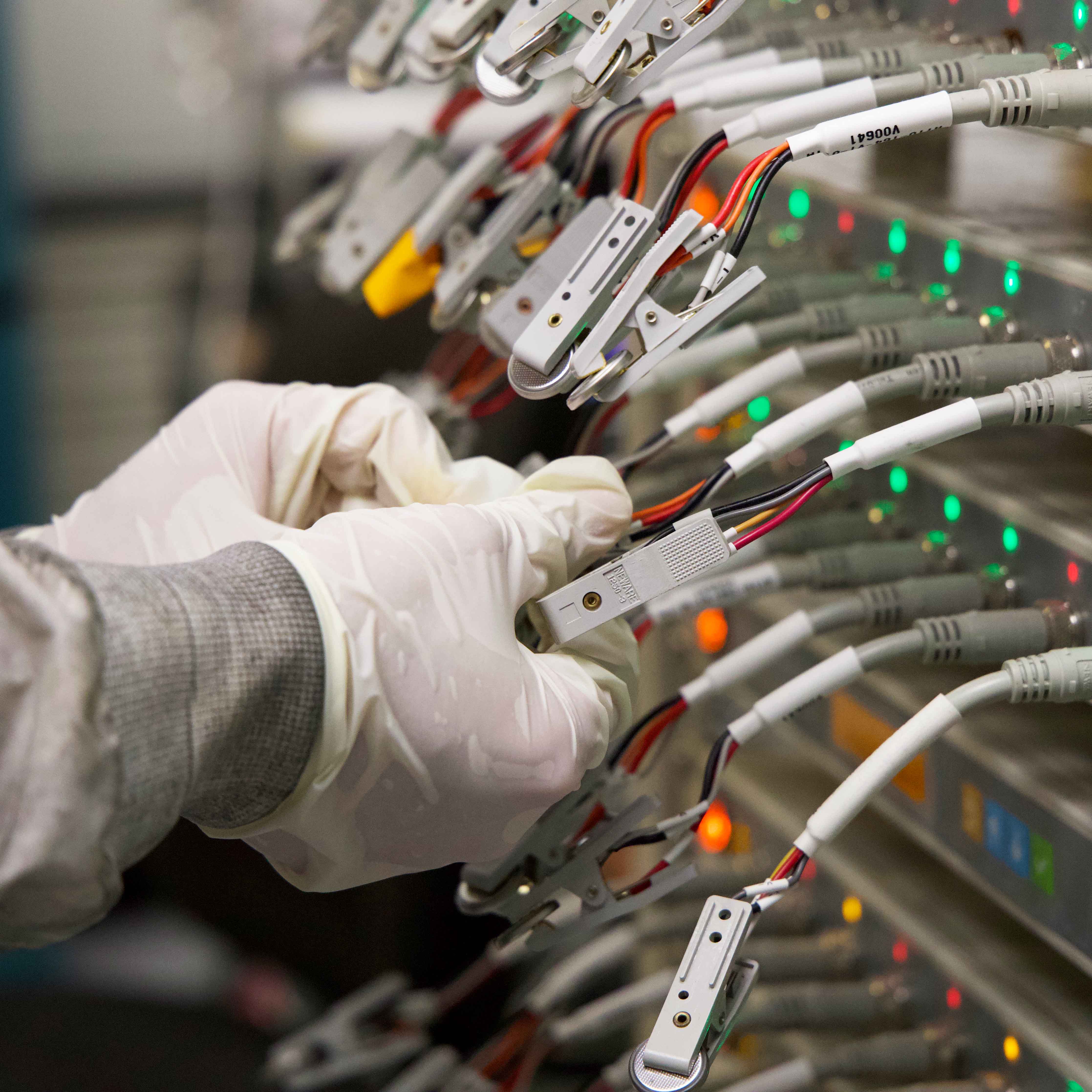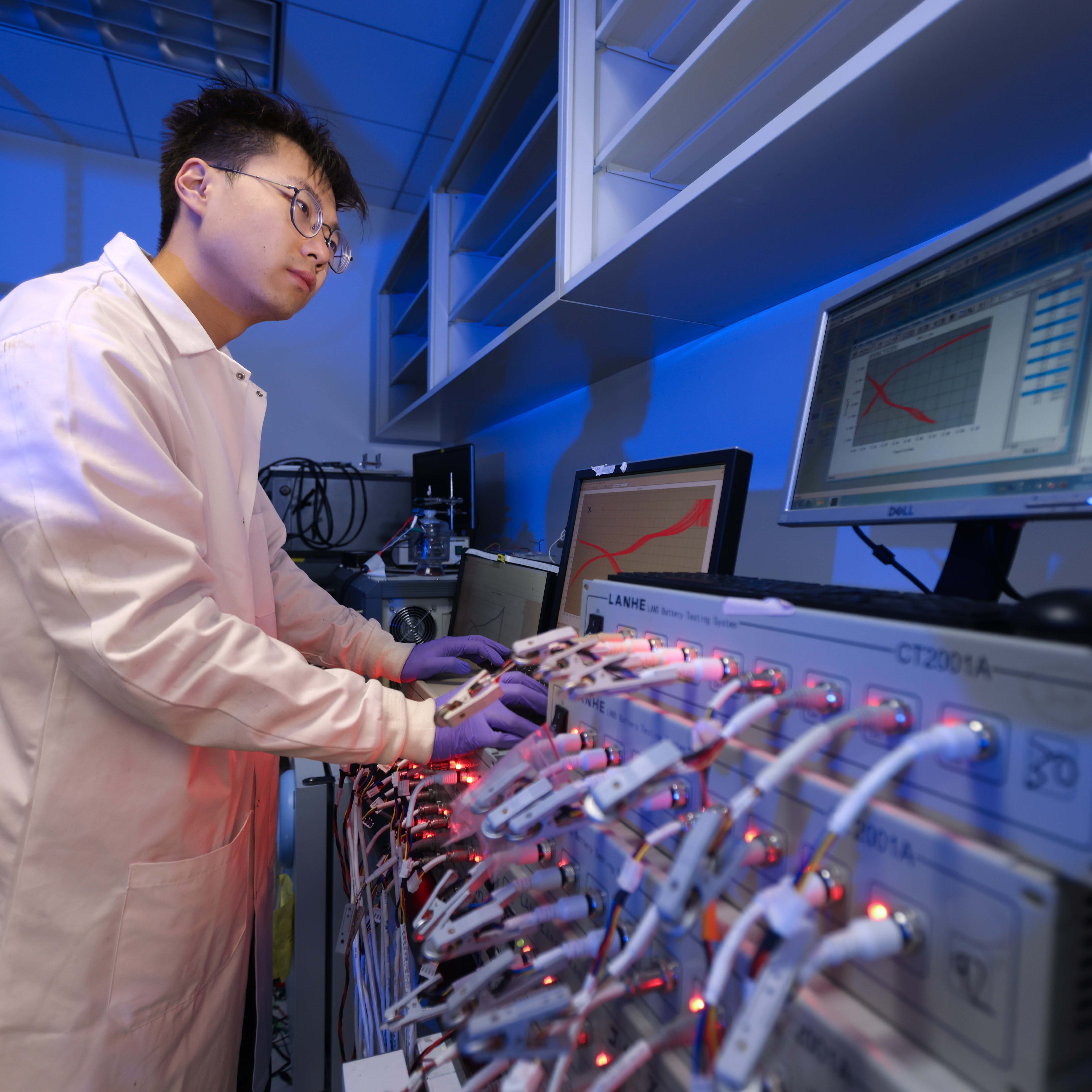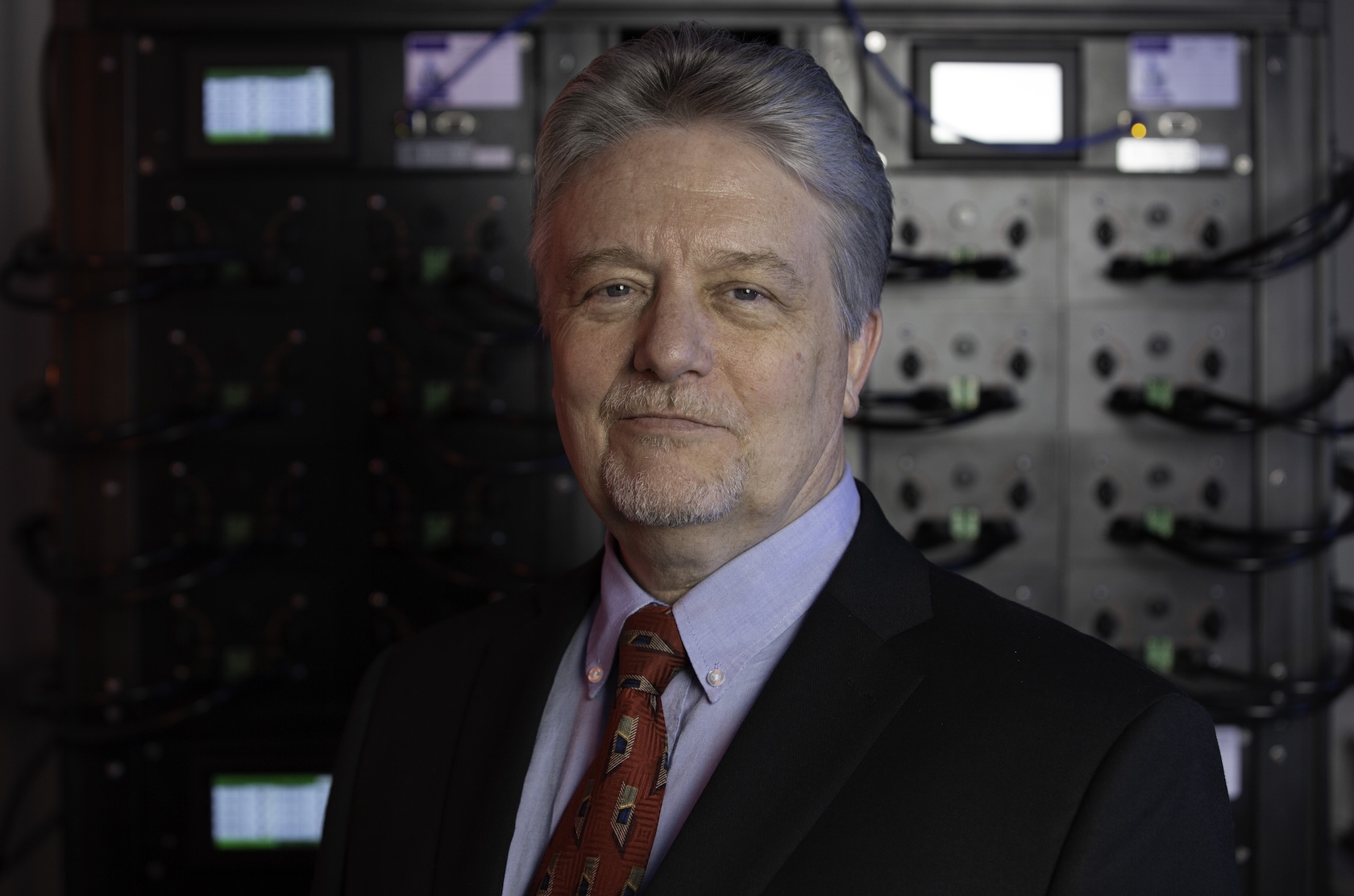News Story
ChBE Graduate Research Awards Announced
The Department of Chemical and Biomolecular Engineering (ChBE) is pleased to announce the winners of its 2012 Master's and Doctoral Graduate Research Awards. The first-place winner in each category will go on to represent ChBE and compete against the winners from the Clark School's other seven departments in this year's forthcoming Dean's Master's and Doctoral Research Award Competitions.
At the doctoral level, Ph.D. candidate Yujie Zhu, advised by ChBE assistant professor Chunsheng Wang, received first place for his dissertation, "Novel Electroanalytical Techniques for Phase Transformation Electrode Materials" and will advance to the college-level competition. The work describes his investigation of the charge/discharge process of single-particle electrode systems at the atomic-scale in situ using high-resolution transmission electron microscopy (HRTEM). The techniques he has developed provide powerful ways to discover the fundamental principles that govern the electrochemical performance of the phase transformation of electrode materials, and can also be applied to other areas of nanotechnology research.
Chia-Ying (Winnie) Chiang, advised by ChBE professor and chair Sheryl Ehrman, took second place for her dissertation, "Copper Oxide Nanoarchitectures for Photoelectrochemical Hydrogen Generation." Her research focuses on the production of copper oxide (CuO) components for renewable energy systems that use solar energy to extract hydrogen from water. She describes the use of spray pyrolysis to prepare tuned CuO nanoparaticles, spin coating the particles on a substrate to produce porous films with large surface areas for water splitting reactions, and the introduction of lithium doping on CuO electrode structures to increase conductivity and decrease resistance. She also describes the creation of three-dimensional current collectors by the sputter deposition of CuO onto a template made from the tobacco mosaic virus.
Aaron Fisher, advised by Fischell Department of Bioengineering professor Peter Kofinas, took third for his dissertation, "Polymer-Ionic Liquid Hybrid Electrolyte for Lithium Batteries." Fisher has developed a patent-pending solid-state polymer electrolyte that provides a lighter, safer, and flexible option for lithium batteries. The material takes the form of a strong, flexible film that can be wrapped or bent into different shapes without breaking. Batteries using this technology will be inherently safer since they will no longer contain flammable liquid electrolytes.
At the master's level, Kunal Pandit, advised by Jeffery Klauda, received first place for his thesis, "Membrane Models of E. Coli Containing Cyclic Moieties in the Aliphatic Lipid Chain," and will advance to the college-level competition. Pandit has developed a more accurate molecular dynamics simulation of the bacterium E. coli's membrane than has been used in research to date. According to Pandit, most simulations simplify the membrane by omitting the presence of lipids with a cyclopropane ring in the acyl chain. By enhancing the complexity of the typical computer model with these molecules, he created a simulation that more accurately reflects the diverse population of lipids within E. coli cytoplasmic membranes, reflects differences between the deuterium order profile of cyclic and monounsaturated lipids, and produces a thinner, more rigid bilayer that more accurately represents the hydrophobic thickness of E. coli transmembrane proteins.
The Department extends its congratulations to all of these excellent scholars!
Published April 27, 2012









